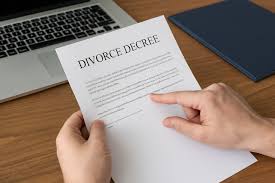How Public Are Divorce Records in Texas? San Antonio Attorney Linda Leeser Explains What You Need to Know
Divorce in Texas isn’t just an emotional and legal process — it’s also a matter of public record. This reality often surprises many individuals going through a divorce, especially those who value discretion and privacy during what can be one of the most difficult periods of their lives. In Texas, the law prioritizes transparency in legal proceedings, but there are also specific steps divorcing parties can take to shield personal details from the public eye.
Are Divorce Records Public in Texas?
Yes. In Texas, divorce records — including filings, decrees, and related court documents — are typically considered public under the Texas Public Information Act. This legal framework is designed to promote transparency and accountability within the court system by allowing public access to many court records.
While this public access supports the fairness of the judicial process, it can also create concerns about sensitive information being disclosed, such as financial statements, child custody agreements, or personal misconduct allegations.
What Kind of Divorce Records Are Publicly Available?
Texas categorizes divorce documents into three main types:
Divorce Certificates: Basic proof that a divorce took place.
Divorce Decrees: Legal documents detailing the terms of the divorce, such as property division, custody, or support.
Complete Court Records: Full documentation of the divorce proceedings, including motions, evidence, testimonies, and communications.
Even the most basic public records will typically include:
The names of both parties
The date and county of the divorce filing
Basic procedural updates
However, more detailed and sensitive content may be eligible for redaction or sealing upon request.
Can Divorce Records Be Sealed in Texas?
Yes — but not automatically. Sealing a divorce record requires filing a motion with the court, and the judge will only grant it if certain legal standards are met. The court must be convinced that sealing is:
In the interest of privacy
Necessary to protect sensitive personal or family information
A better option than less restrictive alternatives
If approved, this process can prevent the public from accessing detailed records such as:
Child custody evaluations
Mental health records
Abuse allegations
Financial disclosures
This is especially important in cases involving children, domestic abuse, or high-net-worth assets.
How to Access Divorce Records in Texas
Individuals can request divorce records through several official channels:
Online via Texas.gov
By mail, including proper identification and request forms
In person at the district clerk’s office in the county where the divorce was finalized
It’s important to distinguish between:
Verification Letters, which confirm that a divorce occurred (available to anyone)
Certified Copies, which include legal details and are usually restricted to parties involved or their attorneys
Why People Request Divorce Records
There are many reasons someone might need access to divorce records, including:
Legal name changes
Remarriage documentation
Child custody modifications
Employment or benefit-related documentation
Legal disputes involving shared property or support obligations
Understanding the purpose of the request helps in determining whether a basic verification or a full decree is needed.
How Legal Support Helps Protect Your Privacy
While Texas law defaults to transparency, it does provide legal mechanisms for individuals to safeguard their privacy. That’s where professional legal guidance becomes crucial.
An experienced family law attorney can:
Help identify what information is at risk
File motions to seal or redact sensitive portions
Prepare legal arguments to present to a judge
Explain what details will appear in public databases
Early legal planning is the key to preventing unnecessary exposure of personal matters.
Finding Balance Between Openness and Privacy
Texas courts aim to balance the need for public oversight with individuals’ right to privacy. If you're considering divorce — or currently in the process — it's important to understand what may become public and what you can do to protect your information.
With careful planning and legal advocacy, you can ensure that your personal matters remain as private as possible, even within a system that emphasizes transparency.
Your Next Step
If you're going through a divorce in Texas and are concerned about the privacy of your court records, it’s wise to consult a qualified family law attorney. They can help you:
Understand your rights under Texas law
Take early action to safeguard sensitive details
Navigate court procedures effectively
Divorce is never easy, but protecting your privacy doesn’t have to be complicated. With the right guidance, you can take control of your information and move forward with greater peace of mind.

COMMENTS (0)
Sign in to join the conversation
LOGIN TO COMMENT